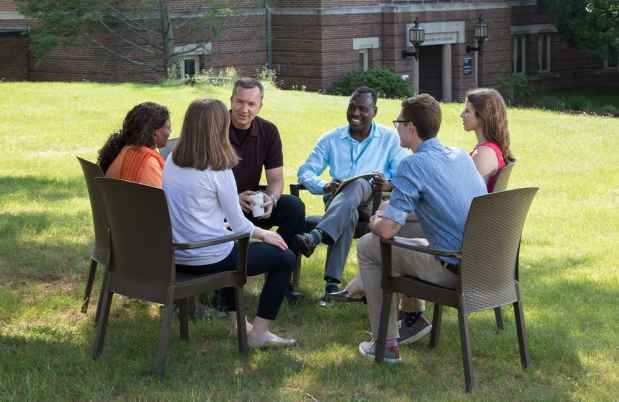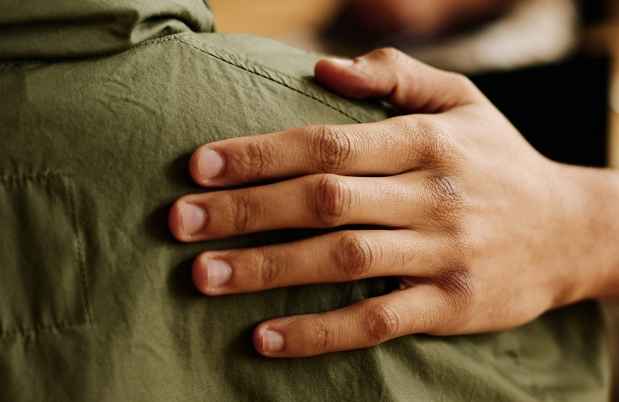Psychological trauma can affect anyone, regardless of age, gender, nationality, or socioeconomic status.
Traumatic stress knows no borders. According to a 2016 study, 70% of people surveyed worldwide had experienced at least one traumatic event in their lifetimes.
McLean Hospital’s free course, The Global Impact of Trauma, featured five presentations from experts around the world.
The event took place live online on September 8, 2022, and was attended by thousands of clinicians, educators, employees of government and non-governmental organizations, as well as other individuals who wished to learn more about the pressing topic.
The course is now available to stream at no cost.
Speakers provided a range of perspectives on the causes, social and cultural factors, and treatment of trauma. Presentations helped viewers understand the mental health scale of issues that make headlines every day—from war, migration, and natural disasters—to problems frequently kept hidden, such as interpersonal violence and sexual abuse.
Attendees had the opportunity to ask follow-up questions in a series of Q&A sessions.
“The sheer number of attendees and the questions they asked throughout the program demonstrated the need for this workshop,” said Scott J. O’Brien, director of Education Outreach for McLean.
“We’re grateful to our presenters for sharing their expertise with our international audience, who can now take this information out into the field where it is desperately needed.”
O’Brien is co-director of the course with Alaptagin Khan, MBBS, FRSPH, whose work at McLean, the Red Crescent, and UNICEF has focused on trauma.
2022 SESSIONS AVAILABLE ON DEMAND
Hear From the Experts: Watch Now!
Did you miss the event? Want to rewatch a talk by one of our expert speakers? Session recordings are available to watch on demand.
Continuing education credits are available for a small fee.

Worldwide Effects of Emotional Trauma
In the event’s opening presentation, Sophia L. Maurasse, MD, McLean Hospital, pointed out that the term “trauma,” which is derived from the Greek word for “wound” is used interchangeably in terms of our response to a distressing event, whether we have sustained a physical or an emotional injury.
“The reason that the focus is on the response is that we need to consider that the outcome in terms of trauma isn’t solely dependent on the events or on the individual in terms of what happens,” Maurasse said.
She explained that whether a situation is traumatic depends on what we bring to the situation, including our genetics, any past traumas we may have experienced, and our stage of development in which the trauma occurs.
There is also a “dose-response” relationship to trauma, according to Alaptagin (Al) Khan, MBBS, FRSPH, McLean Hospital, who spoke about the impact of adverse childhood experiences (ACE). “The more adversity there is, the more risk and severity there is,” he said.
Khan said that childhood trauma is the most preventable risk factor for public health. As an indicator of how serious the situation is in the U.S., he cited statistics that in 2020, 3.14 million children were subject to child welfare response calls.
According to Khan, the threat of traumatic stress is even more serious on a global scale, in which an estimated 50% of children experience violence.
Wahab Yousafzai, MBBS, FCPS, Shifa International Hospital Islamabad, who has worked extensively with refugees, spoke of the psychiatric impact of displacement and migration around the world.
According to Yousafzai, displacement creates the potential for trauma at every stage of a person’s journey, whether it entails the stress they experienced prior to fleeing their country of origin, the issues triggered by migration, or the challenges of post-migration, such as isolation and marginalization.
Yousafzai urges therapists to remain culturally sensitive when working with displaced persons. “It’s important to understand trauma in the context of different cultural and social backgrounds,” he said. “It is also important to recognize resilience in these contexts.”
Despite the serious impact of trauma on mental health, culturally sensitive, effective treatments exist.
Benjamin Iffland, PhD, Bielefeld University, described how narrative exposure therapy (NET) has been successful in treating the symptoms of post-traumatic stress disorder (PTSD) as well as other mental health conditions. NET is particularly helpful for people who have experienced multiple traumas.
“A traumatic event is isolated in the life history of the patient,” Iffland explained. “Within the memory of a traumatic event, time stands still, and spaces and places are restricted.”
Because of this, significant trauma disrupts a person’s autobiographical memory. NET, which typically involves 12-14-sessions, guides patients in creating a coherent narrative of both the positive and traumatic events of their lives, allowing them to integrate their experiences.
Another culturally sensitive treatment for trauma is the community resilience model (CRM), which helps people identify and regulate their emotional experiences.
Developed by the Trauma Resource Institute, CRM can be implemented at the individual or group level, and has been used in settings such as schools, community health care, and prisons.
In their presentation on the topic, Linda Grabbe, PhD, APRN-BC, Nell Hodgson Woodruff School of Nursing, Emory University, and Elaine Miller-Karas, MSW, LCSW, Trauma Resource Institute, explained how CRM allows people to cultivate their own resiliency.
The model’s skills help individuals identify emotional experiences, name them, and lean into neutral or positive experiences instead of being engulfed by them.
“When you practice CRM … you have a different perception of yourself and the world,” said Grabbe.
Miller-Karas shared, “We can start to read our nervous system to tell the differences between sensations of well-being and distress. When we can do this, we have a choice of what we want to cultivate inside of us.”
Media Requests
Journalist or member of the media? We are available 24/7 for media requests.



